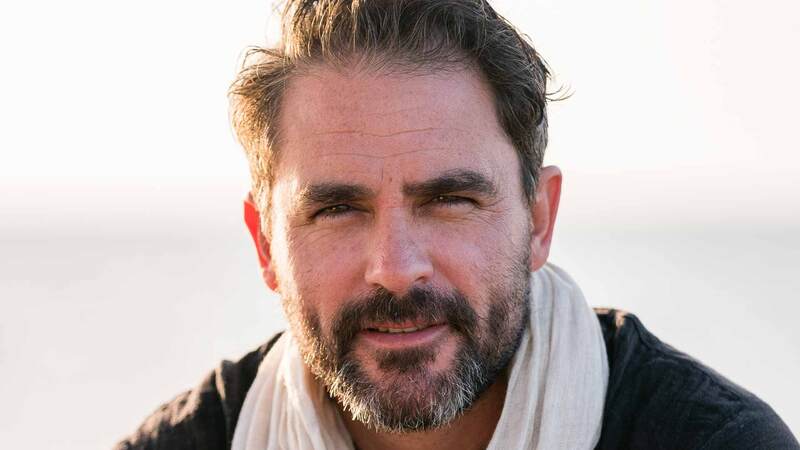You are viewing your 1 free article this month. Login to read more articles.
10 Questions: Tom Moran
1. Sum up your novel in three words.
Surreal, unique, completely bonkers. I know that’s technically four words, but I never adhere to word counts.
2. Where did the initial idea come from?
It all started with a character. Walton Cumberfield was the result of several years’ experimenting with the comic potential of a narrator who is completely detached from reality. The story itself came later; I had always wanted to write a time-travel story with a cyclical structure, and Walton seemed the perfect character to take on such a journey.
3. How was the title chosen?
Dinosaurs and Prime Numbers was originally the title of chapter two, but it soon became a sort of motif in the novel – a symbol of Walton’s youthful innocence and the importance he places on obscure details. As titles go, it’s a bit like The Catcher in the Rye – it means nothing and everything at the same time.
4. What's your writing routine?
For me, writing is a lot like eating. I find it’s better to make time for a dedicated writing session – a literary meal, so to speak – so that I can really get my teeth into it. Grabbing a few moments here and there is creative snacking and you run the risk of a flabby and unsatisfying result, like a metaphor that has been extended past the point of all credibility.
5. Which book do you wish you'd written?
A Debt to the Universe. It’s the sequel to Dinosaurs and Prime Numbers, and had I written it, I’d have more time for wine and party games. Just to clarify, "wine and party games" is not the title of the third novel. I just want a rest.
6. What's your favourite word in the English language?
Probably bugger’. Can I say bugger? I think that’s what I like about it – nobody’s quite sure how rude the word is because however you use it, it just sounds like such a silly word. It’s also very, very British.
7. Who's your favourite fictional character?
I think it’s hard for any literary character to rival the level of timeless intrigue engendered by Sherlock Holmes. Walton, of course, is nothing like Holmes, although he quite obviously wishes that he was, and quite probably could be, if only he wasn’t such a plonker. One element that is somewhat inspired by the Holmes stories is Walton’s relationship with his much put-upon lodger, Roger, which borrows a little from the Holmes-Watson dynamic.
8. What was your favourite book as a child?
I can remember loving the "Adrian Mole" books when I was in my early teens, and there is certainly a little bit of Mole in Cumberfield – except that Cumberfield is more extreme, of course – and the universe he inhabits is infinitely more bizarre.
9. What book are you recommending to everyone at the moment?
Finnegan’s Wake by James Joyce. I haven’t read it, of course, but I like to pretend I’m one of the eight people in the world who has, and trick people into attempting it themselves.
10. What do books and reading mean to you?
I find it interesting how such a solitary activity can be so socially rewarding. Once you’ve read a book, you instantly become a member of a club made up of other people who have read that book. It can spark conversations between two strangers on a train or help to facilitate the foundation of a new friendship. I love it when I hear that people have stopped reading my book to share a section with their friends. That’s why I wrote it – to spread a bit of fun and happiness around. There isn’t enough of that nowadays.















